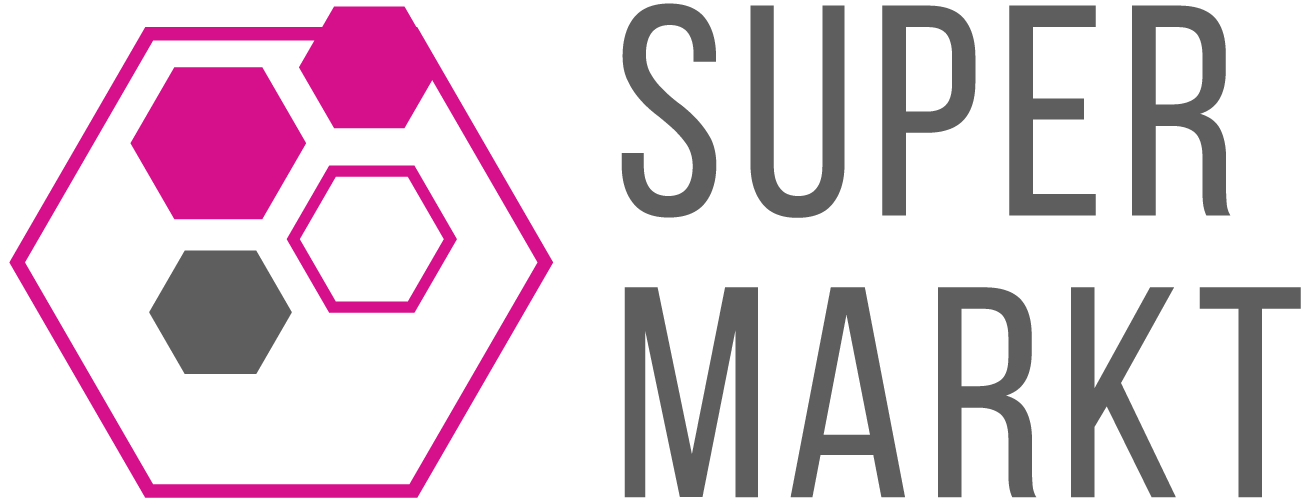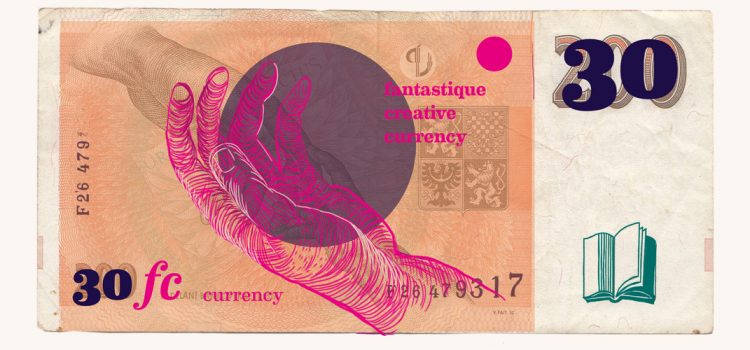MoneyLab Berlin: March 26-28, 2021
Statement by Ela Kagel, SUPERMARKT Berlin
MoneyLab #11: Disaster Capitalism
This first edition of MoneyLab Berlin is inspired by Naomi Klein’s book The Shock Doctrine: The Rise of Disaster Capitalism from 2007. Kleins work centers on the exploitation of crises to establish controversial and questionable policies, while citizens are too distracted, emotionally and physically, to engage and develop an adequate response. When everyone is consumed by crises, no energy is left for resistance.
Facets of crisis capitalism
We have been living in a crisis mode for years: from the financial crisis to the climate crisis to the worldwide health crisis caused by the Covid-19 pandemic. An end of the ‘crisis’ narrative is not foreseeable in the near future. Quite the contrary: each new state of emergency unlocks a new level in the ongoing chain reaction of effects and policies. There seems to be no chance for us to get out of the multiple crises – we are caught in a constant escape mode.
When people are distracted someone is making profit
The wealth of US-billionaires has risen to $10.2 trillion amid the current Covid-19 crisis. While millions lost their jobs or suffered from homelessness, the super-rich managed to increase their fortunes by more than a quarter at the height of the crisis in 2020. This has raised concerns about obscene amounts of money flooding into the portfolios of the already wealthy, at a time when many face eviction, poverty, and loss. Because of long-standing racial and gender disparities, low-wage workers, people of color and women have suffered disproportionately in these combined medical and economic crises.
Go digital, or go dark!
The stock market surge and lock-down economy have been a boon to tech monopolies. The video conferencing software Zoom has become a symbol of the digital migration of our social contacts, despite blatant privacy and security problems. A steadily growing number of people are seeking entertainment on streaming platforms, driving data traffic to unprecedented heights. As Covid-10 surges, the world’s biggest tech companies report staggering profits. In a contactless world, the vast majority of interactions and transactions must take place virtually. This opens the doors to endless business opportunities.
What if…?
So, the question arises: is the permanent catastrophe notion possibly the last push of the age of finance capitalism? What if people had a chance to care for each other rather than becoming increasingly isolated? What if we started to train our collective imagination and began building patterns of solidarity in our immediate surroundings? The Covid 19-pandemic not only awakens our deepest fears, but also our sense of what is possible.
MoneyLab Berlin wants to shine a light on emerging communities that are starting to organize themselves around sustainable finance, inclusive tech, community-based currencies and progressive monetary systems.
This 11th MoneyLab edition, now for the first time in Berlin, aims at creating space for utopias, experiments and radical ideas of an economy for people and planet. In the course of this event we will present creative coping strategies, answers to the phenomena of data capitalism, platform monopolies and online surveillance, as well as modes of resistance.
What to expect
The event will be starting off on Friday, March 26th, 2021 with an opening ceremony at the temporary MoneyLab studio located at SUPERMARKT in Berlin. We will stream a live program from the studio to our remote guests and speakers in order to engage everyone in participatory online formats.
On Saturday, 27th-Sunday, 28th, the local Berlin audience has a chance to participate in a workshop parcours in various locations in the city. Each of these locations is a hub in this growing scene of a commons-based, contributive economy in Berlin. This decentralized workshop parcours will apply any health and safety measures necessary to keep people safe during the event. More info to follow shortly!
For those following the event remotely, we will live stream some of the workshops. For some of them, even remote participation is possible. There will be a track of discussions and talks throughout the whole weekend, streamed live from our studio at SUPERMARKT and at our main partner’s venue, TRUST.
Stay tuned for programme updates in the coming weeks!
MoneyLab Berlin partners and contributors:
The international MoneyLab community and MoneyLab board, namely: Geert Lovink, Akseli Virtanen, Pekko Koskinen, Denise Thwaites, Nataniel Tkacz, Max Haiven.
Trust – Incubator for Utopian Conspiracy: Arthur Röing Baer, Calum Bowden.
Platform Cooperatives Germany eG: Andreas Arnold, Claudia Henke, Ela Kagel
The Sphere: Erik Bordelieu, Yael Sherill, Olle Strandberg, Sarah de Vylder
Economic Space Agency: Akseli Virtannen, Pekko Koskinen
Circles – Basic Income on the Blockchain & Café Grundeinkommen Berlin: Blanka Vay, Julio Linares
Coop Space Berlin: Felix Weth
Social Coin: Valentin Seehausen
DisCO: Anne Marie Utratel, Stacco Troncoso
MoneyLab Berlin is supported by Hauptstadtkulturfonds Berlin and the Institut of Network Cultures Amsterdam. We want to thank both institutions for their support!
Get in touch:
info@supermarkt-berlin.net
https://supermarkt-berlin.net
https://networkcultures.org/moneylab/newevents/moneylab-11-disaster-capitalism/
Follow us:
MoneyLab Discord group: https://discord.com/channels/782253798965772288/782253798965772292
Twitter: #MLBerlin
Context:
Background of the MoneyLab network
The economic crisis of the past decade, a more flexible creative sector and the emergence of a new world (the digital domain) have led to a special project: MoneyLab. MoneyLab was created to bring the creative sector into contact with digital business models and opportunities for other forms of distribution and intellectual property. A necessity for a sector in financial difficulties. In this climate of financial turmoil, MoneyLab creates a platform for critical reflection and initiatives for bottom-up change and gives the social and financial debate a creative perspective.
MoneyLab is an international multi-disciplinary network of artists, designers, programmers, researchers and journalists. It considers itself a critical platform for imaginative projects that build a more democratic economy, especially within the creative industry. An economy where not only ‘the big boys’ get the money, but where there are opportunities for everyone to participate. It looks far beyond the boundaries of current financial institutions and maps out new opportunities for the distribution of creative content, intellectual property and digital business models, together with and for the creative sector.
The strength of MoneyLab lies in its diversity: research, art, discussion, activism and technological developments intertwine, pop up or complement each other. All productions (toolkits, exhibitions, symposia, publications) have a political, social, creative, economic and technical approach. The project consists of a network of international pioneers in the field of alternative finance. These can be researchers, or journalists, artists and economists, or entrepreneurs, geeks and other ‘makers’. All in their own way, they work on various interventions in the financial world with the common goal of democratizing the economy. The projects under the MoneyLab umbrella are therefore diverse and of an artistic, conceptual or technical nature, but all have a digital signature. Bringing together professionals from many different disciplines who work together towards concrete products and initiatives that provide answers to contemporary social issues is the unique strength of the INC.
MoneyLab is peculiar: it offers possibilities that you have never heard before, that are slightly different and that go a step further. Examples include peer-to-peer insurance organizations that put the current insurance model aside, collaborations between journalistic leak platforms and artists, such as the Economic Space Agency (founded in Helsinki), a collective of software programmers and economists that uses the block chain for a distributed system of economic platforms in which shared values are central, or blockchain initiatives for decentralised art and music distribution, but also crypto-currencies grafted onto the creative sector and social communities.
More info on previous MoneyLabs and the people & institutions behind the network here: https://networkcultures.org/moneylab/
Die MONEY TALKS-Serie präsentiert alternative Geldsysteme, Community-Währungen und nachhaltige Kryptos.
In unserem Money Talk No.1 haben wir Karim Chabrak, den Gründer von www.coinsence.org vorgestellt. Coinsence ist eine Vernetzungsplattform mit eigenen digitalen Währungen. Dahinter steckt vor allem auch die Vision eines neuen Wirtschaftens. Coinsence basiert auf einem dezentralen Währungssystem, in dem die Geldschöpfung nicht einigen Wenigen vorbehalten ist, sondern durch Communities und deren Wertschöpfung passiert.
Hier unser #MONEYTALKS-Podcast mit Karim, im Interview mit Caroline Bertram:
Für unseren Money Talk #2 war Shermin Voshmgir am 22. Februar 2018 im SUPERMARKT zu Gast. Sie ist Leiterin des Instituts für Kryptoökonomie an der Wirtschaftsuniversität Wien und Gründerin des Blockchain Hub. Wir haben Ihren Vortrag „Token Economy – The Future of Curencies?“ aufgezeichnet. Nachfolgend auch das Abstract Ihres Vortrages auf Englisch:
There is a widespread misconception that Bitcoin and tokens that have derived from similar technologies, are currencies comparable to fiat currencies like EUR, USD, etc. This talk points out why Bitcoin and other crypto tokens are not currencies in the traditional sense, but rather a new asset which has more similarities to commodity money rather than to fiat money. It is furthermore an operating system for a new type of economy with distributed governance that can transcendent geographic boundaries of nation states. The biggest challenge that we face, when we are trying to explain or discuss Bitcoin, Blockchain and Tokens, is that we are trying to explain new phenomena with old terminology that sometimes don’t do justice to the full range of possibilities that these new technologies have to offer. While it might be counterproductive to call Bitcoin a currency, it does have similarities with money as we know it. But what are the roles and functions of money, and can a token economy eradicate the monopoly of nation states to issue money?
Und hier das Video von Shermin’s Vortrag:
Mit dem Gast unseres Money Talks #3, Ludwig Schuster, hat Caroline Bertram einen Podcast gemacht:
Money Talk #3 The Money is the Message: Turning Credit Creation into a Force for Good
In this Money Talk session at SUPERMARKT, Ludwig Schuster is going to lay out why money actually is the message and how capitalism’s core feature – credit creation through banks – counteracts our efforts for sustainable change.Together, we will explore – and prototype! – some monetary design hacks to turn credit creation into a force for good. (May contain traces of blockchain).
In a capitalist economy, institutions known as banks create credit for what is expected to be profitable.
No monetary profit, no credit.No credit, no money.
Bank credit is the core driver that allows but also forces us to reproduce an economy of growth, day by day. All of us.
More than three decades after the rise of the environmental movement, it should be crystal clear: Sustainable change fails to materialise, because long term thinking and eco-social impact is not accounted in banks’ balance sheets.
Bank credit is what forces us to behave profitable instead of sustainable. If credit creation lies at the heart of the problem, could it be a key to its solution? „It is the institution of credit that is the real disruptor“ – Perry G. Mehrling (INET)
Imagine credit creation that puts people and the planet first. Imagine a global good impact economy, nurtured by ‚impact credit‘.
Ludwig Schuster is a freelance strategy consultant for the ‚good‘ economy. As a founding member and researcher of Sustainable Money Research Group he published on Regional Currencies, National Parallel Currencies, Carbon Currencies and Energy Currencies, as well as on the monetary drivers of economic growth. With many years of expertise in monetary systems and token design, he has been advising several green FinTechs and digital currency start-ups. He is also a co-organizer of the Conscious FinTech meetup series at Impact Hub Berlin, where FinTech and cryptocurrency engineers meet social innovators.

